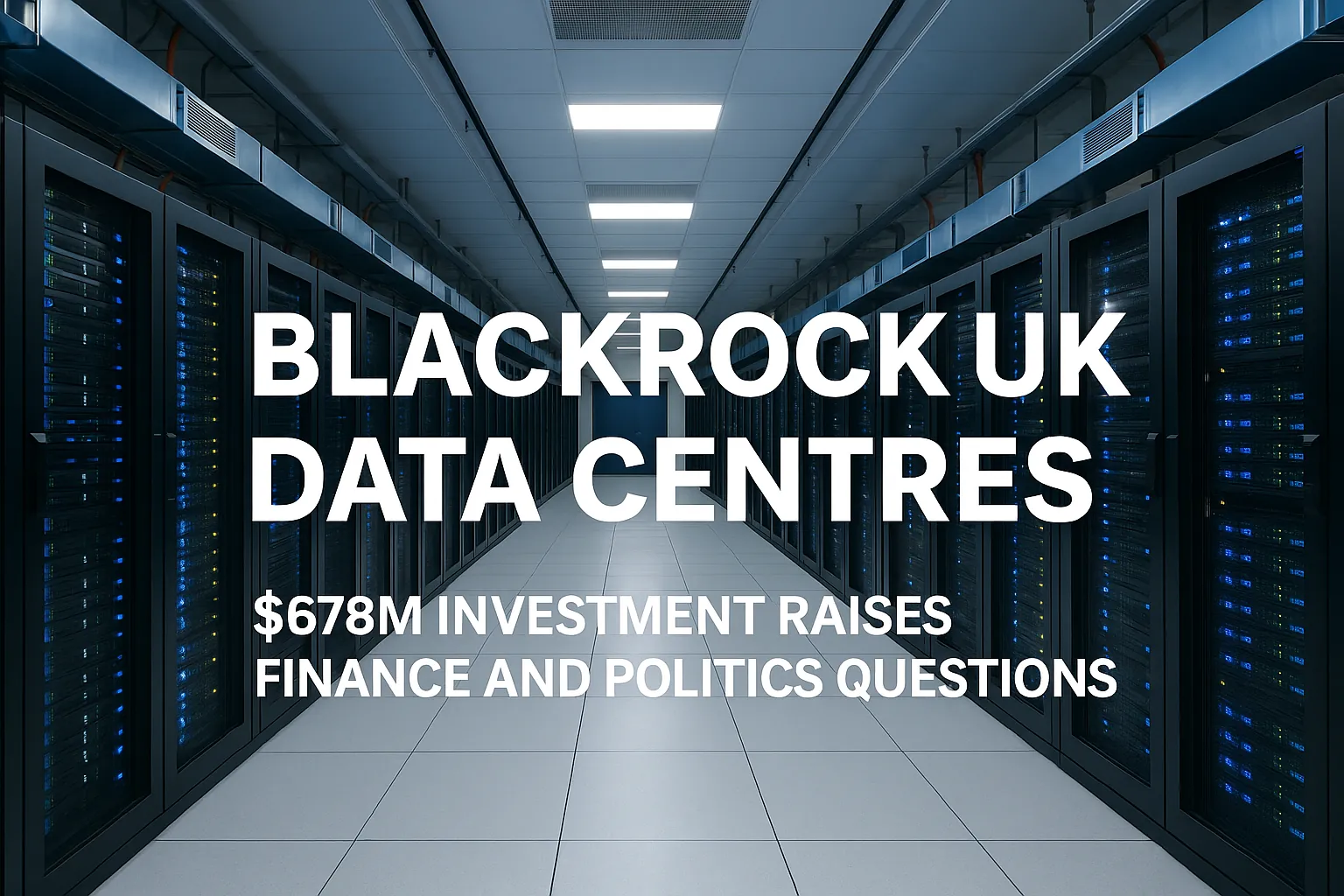When BlackRock announced a $678 million investment in UK data centres during President Trump’s visit, the mainstream praised it as a symbol of confidence. But I see something else: BlackRock UK data centres are not just about digital infrastructure. They are about influence, timing, and the dangerous fusion of finance with political theatre.
Context: BlackRock’s bold UK investment
According to Sky News and Reuters, BlackRock will channel $678 million into British data centres, citing rising demand for cloud services and digital infrastructure. The announcement conveniently coincided with Trump’s official trip to London. On the surface, this looks like a global finance giant strengthening UK’s tech future.
Politicians and mainstream analysts rushed to frame it as proof that post-Brexit Britain remains attractive. They hailed the deal as a milestone for jobs, innovation, and competitiveness. But behind this corporate gloss lies a much darker calculus.
Oppositional Argument: finance wrapped in politics
I refuse to celebrate this deal as “neutral business.” It is not. BlackRock UK data centres are an investment unveiled during Trump’s visit — a man who thrives on spectacle. The overlap is not a coincidence but a deliberate alignment of money and politics.
BlackRock knows that timing is power. By linking its financial muscle with Trump’s narrative, the firm signals loyalty not just to the market but to political symbolism. This is not about servers and racks. It is about political positioning, influence peddling, and economic theatre disguised as development.
Analytical Breakdown: digital growth or fragile dependency?
Yes, demand for data storage is booming. AI, e-commerce, and streaming need infrastructure. But the UK is betting its digital sovereignty on foreign capital. BlackRock will control the backbone of Britain’s information economy, while London politicians cheer.
The implications are stark:
- Economic dependency on US finance deepens.
- Strategic infrastructure is outsourced.
- Political credibility is traded for corporate headlines.
Instead of building domestic capacity, Britain becomes a stage for Wall Street giants to perform geopolitical theatre. The $678 million figure looks large, but it pales compared to the systemic risk of foreign dominance over digital assets.
Human Perspective: workers or pawns?
Supporters will argue that ordinary people gain jobs from these data centres. Yes, there will be construction, management, and IT roles. But let’s be honest: most benefits will flow back to shareholders in New York, not families in Manchester or Birmingham.
Ordinary workers become props in a larger play. Their employment is the human shield behind which global capital advances, securing headlines and political points. Once the cameras move on, Britain remains just as dependent, just as fragile.
Counterarguments
Defenders say foreign investment is essential because the UK lacks capital. They point to economic stagnation and argue that without BlackRock, there would be no growth. I reject that logic. Dependency is not growth. Strategic industries should not be auctioned off for political spectacle.
Conclusion: finance as spectacle, sovereignty as casualty
BlackRock UK data centres are less about technology and more about power. A $678 million cheque buys influence, headlines, and applause. But it also weakens sovereignty, deepens dependency, and exposes how finance and politics now merge into a single fragile system.
Britain does not need another foreign investor parading alongside a controversial U.S. president. It needs independent capacity, strategic vision, and the courage to reject financial theatre disguised as progress.
